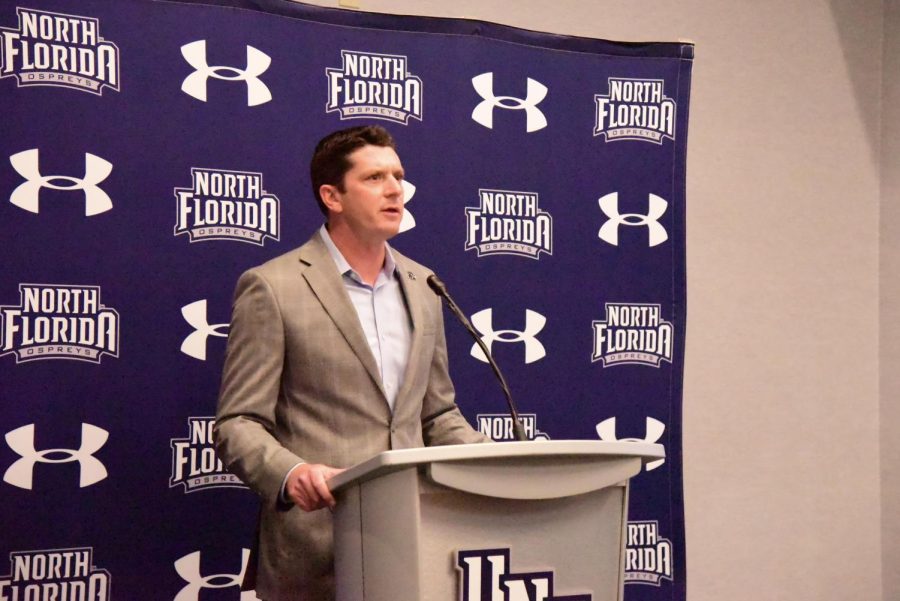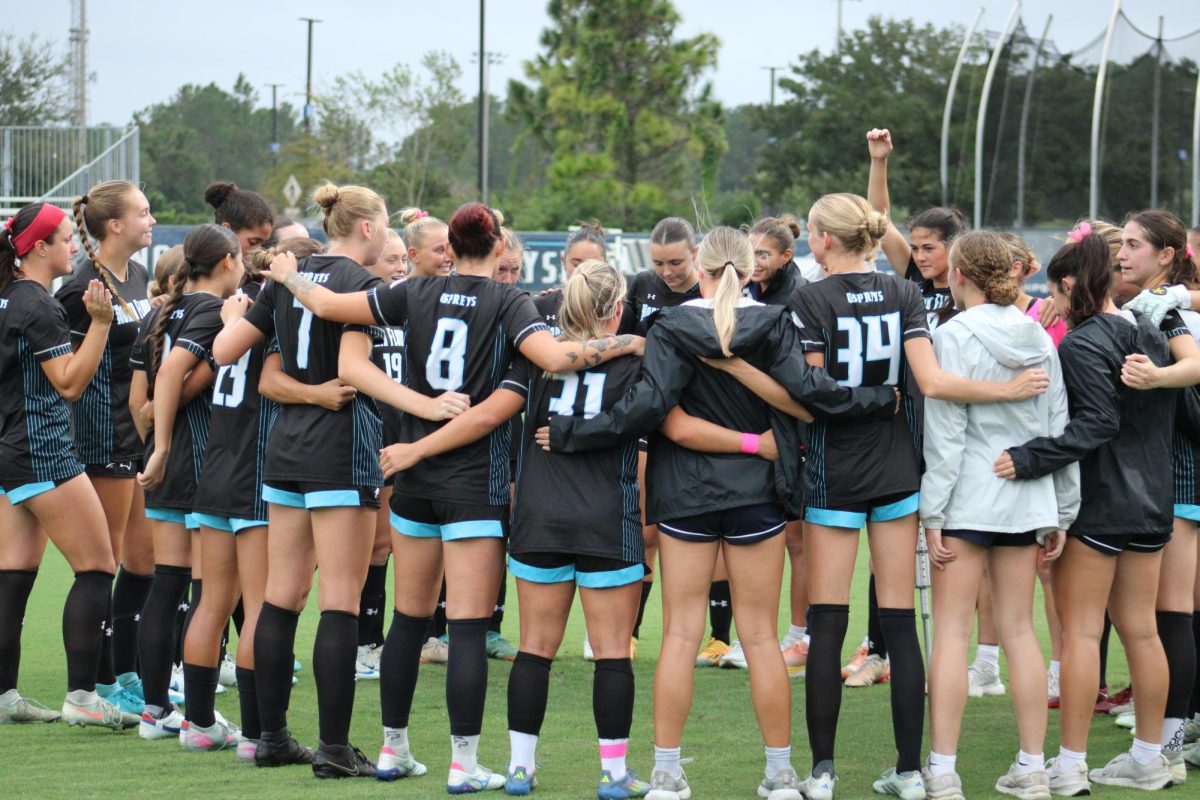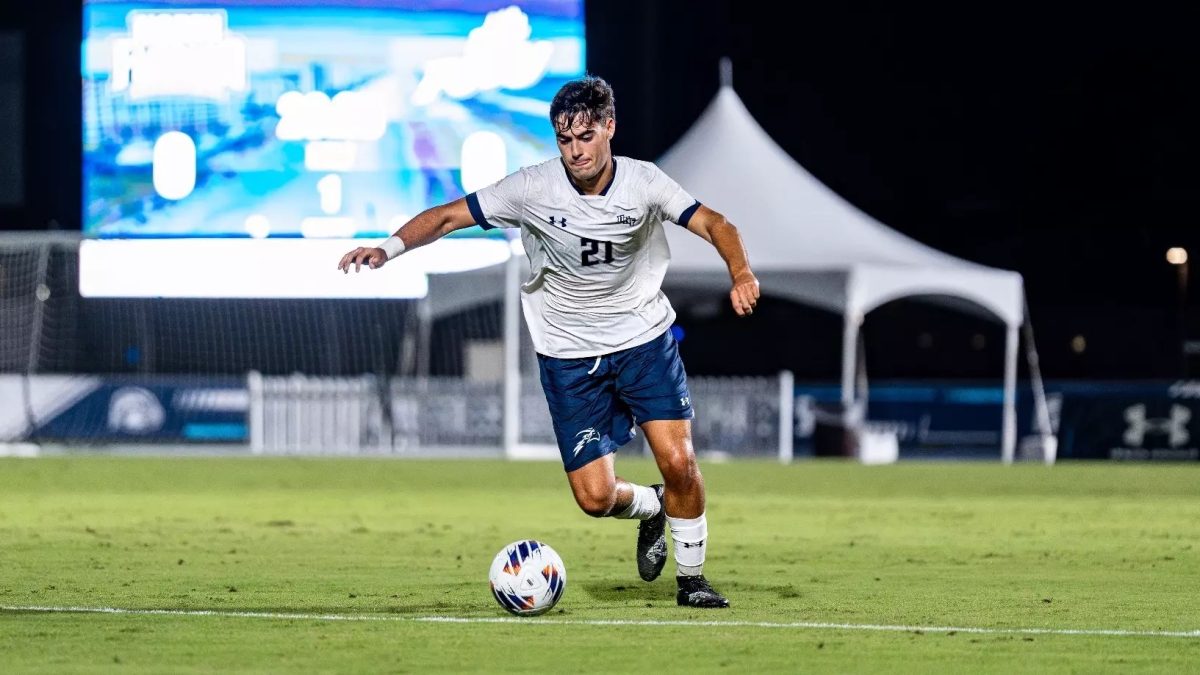One UNF student went somewhere else
By Joseph Basco
In the event that a student becomes intoxicated with alcohol or drugs, UPD is instructed by Student Affairs to deliver the student to Gateway Health Systems, a rehabilitation center on Stockton Street, for detoxification. But prior to Aug. 22, this procedure was not in place, leading to a long evening for one intoxicated student, according to an incident report filed by UPD July 24.
The procedure of intoxicated student treatment begins when a UPD officer makes contact with the student. If the student is not a minor, with people who are not impaired and not causing a disturbance, UPD may allow the student’s peers to bring him or her back to their home off campus. If the student is causing a disturbance, they will be arrested for disorderly intoxication.
If the student is a minor, UPD calls the student’s legal guardians to pick the student up from campus grounds. If the guardians are unable to pick them up, then the student is transported to Gateway, 16 miles away from UNF.
For on-campus students, UPD makes contact with the housing area coordinator to find out if anyone can watch the student in their room as they sleep off their intoxication. If no one is available, the student is then transported to Gateway. Since most intoxications occur at night, according to numerous incident reports the Spinnaker receives, there would be nobody available to supervise the student. Thus, detoxification at Gateway is the most used option, UPD Lieutenant Mike Gwynes said.
This summer, UPD attempted to take Samuel Romano, an 18-year-old UNF mechanical engineering freshman, to Gateway after he blew a blood alcohol content level of .182, which is .102 over the legal limit.
Barbra Williamson, a representative of Gateway, spoke to UPD officer D.E. Zinkgraf.
She said Gateway would not accept Romano for reasons she would not specify.
Officers then attempted to deliver Romano to the Duval county jail, but JSO Corrections Officer J. Smith said the docket was rejected and Shands Hospital in downtown Jacksonville is the only option.
Romano was taken to Shands Hospital, where Shannon Paradise, head nurse of the Emergency Room, assumed responsibility for him as a courtesy for UNF. The total investigative time was four hours and 30 minutes.
Romano said he was locked inside a UPD vehicle for the entire duration of the investigation.
“Three hours in to the ride, I was completely sober and wondered ‘What am I doing here?’” Romano said.
Everett Malcolm, UNF associate vice president of student affairs, said if Gateway is unable to accept an intoxicated student(s) at the time, then UPD should bring the student to St. Lukes Hospital on Belfort Road.
Mark Richardson, associate UPD chief, said the current procedure was not implemented when this incident occurred. During the summer, UPD followed JSO’s policy of bringing intoxicated individuals to either Gateway or Shands. He said the UPD policy of bringing students to Gateway started Aug. 22.
By comparison, students at the University of West Florida are subjected to referrals to Student Affairs for conduct. If they become disorderly, they will be arrested, said Jim Hurd, UWF senior associate vice president of Student Affairs. UWF does not bring students to rehabilitation centers for detoxification.
There were 50 cases of level two alcohol violations in 2010, which refer to second time alcohol offenders or heavily intoxicated offenders that require detoxification at Gateway or St. Lukes,
Malcolm said.
Gateway has a contract with the university that guarantees UNF access to the rehab center and ensures a uniform price for service. Malcolm said Gateway provides services for UNF students of all ages.
River Point Behavioral Health, located seven miles away from UNF on Beach Boulevard, was the previous rehab center for intoxicated students. UNF and River Point parted ways after new management decided to cease treating minors, Malcolm said.
“There was no increase in cost,” Malcolm said. “We were fortunate to negotiate the same type of contract with Gateway as we had with River Point.”
The cost a student must pay if they are transported to Gateway is $350. Gateway bills UNF the cost and the university pays up-front. The student is then charged that amount on their student account. If the student has insurance that covers this cost, they may file themselves with the insurance company, Malcolm said. Students may also negotiate a payment plan if they cannot pay $350 upfront.
Students are treated at Gateway for no longer than 23 hours. After release, the student must make their own arrangements for transportation, said Gwynes.
“[Sleeping in the dorms] is an option not used a lot, but you have to look at the circumstances of each individual case,” Gwynes said. “If they can safely go to sleep then we’ll do that. It’s just one option of many.”
Sleeping off drunkenness in a dorm is preferable to detoxification at Gateway, Romano said.
“I would not have liked [going to Gateway],” he said.
All underage drinkers and intoxicated students at UNF are referred to Student Conduct, where they must attend a hearing and face sanctions, such as referral to Health Promotions to be educated on the dangers of alcohol and drug use.
Malcolm said Student Affairs is aware students are going to drink and explore with “different things.” He said their job is to raise awareness of the dangers associated with those activities.
“What we want to do is, number one, ensure [students’] safety and well being,” Malcolm said, “Number two, provide them with as much educational options that they would need when they’re making those kinds of choices.”
















